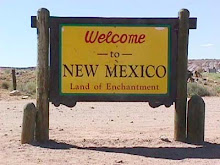Christ's Public Triumph
Tim Challies posted a blog entry this morning about the state of the church, and my first response (as recorded in the comments to that blog) was a memory of this morning's reading from chapter 15 of The Bruised Reed.
To recap:
Christ, whom God has chosen to set forth the chief glory of his excellencies, is now veiled in relation to his body the church, but he will come before long to be glorious in his saints (2 Thess. 1:10), and not lose the clear manifestation of any of his attributes. He will declare to all the world what he is, and then there shall be no glory but that of Christ and his spouse. Those that are as smoking flax now shall then shine as the sun in the firmament (Matt. 13:43), and their judgment shall be brought forth as the noonday (Psa. 37:6). (pg. 110)
We may bemoan the state of the modern church, but Sibbes reminds us that Christ will be victorious in His church, and will manifest His glory in His bride. His victory is eminent and will be public. There will be none ignorant of it even if they choose to live in ignorance and denial at present. Truth and piety may be trampled upon for a time, but as the two witnesses (Rev. 11:11), after they were slain, rose again, and stood upon their feet, so whatever is of God shall at length stand upon its own foundation. There shall be a resurrection, not only of bodies but of reputations. Can we think that he that threw the angels out of heaven will suffer dust and worms' meat to run a contrary course, and to continue always so? No, as truly as Christ is `King of kings and Lord of lords' (Rev. 19:16), so will he dash all those pieces of earth which rise up against him, `as a potter's vessel' (Psa. 2:9). (pg. 111)
Possibly one of the reasons for the (apparent) sorry state of the modern church is the fact that she has lost sight of the fact that victory is Christ's alone. Too often we strive according to our strength and plans and think that we are doing Him a service in our disobedience. ...it is Christ that must do the work, by (1) removing, or (2) weakening, or (3) suspending opposite hindrances; and (4) by advancing the power of his grace in us, to a further degree than we had before we fell. Therefore when we have fallen, and by falls have been bruised, let us go to Christ immediately to bind us up again. (pg. 113-114)
How often do we rebel against the fact that we have no strength in ourselves? And this should be particularly observed because naturally we aspire to a kind of divinity, in setting about actions in the strength of our own abilities; whereas Christ says, `Without me ye', the apostles, who were in a state of grace, `can do nothing' (John 15:5). He does not say, you can do a little, but nothing. Of ourselves, how easily are we overcome! How weak we are to resist! (pg. 114)
Do we sometimes feel all alone in our weakness? The manner of Christ's bringing forth judgment to victory is by letting us see a necessity of dependence on him. Hence proceed those spiritual desertions in which he often leaves us to ourselves, in regard to both grace and comfort, that we may know the spring head of these to be outside ourselves. (pg. 115) He leaves us to ourselves until in frustration or despair we see our need for Him.
Yet, in our weakness He has power. Great power, exceeding power, working and mighty power, the power of the resurrection. ...God's people feel a powerful work of the Spirit, not only revealing to us our misery and deliverance through Christ, but emptying us of ourselves, as being redeemed from ourselves, and infusing new life into us, and afterwards strengthening us and quickening us when we droop and hang the wing, never leaving us till the conquest is perfect. (pg. 117)
We are weak, He is strong. We may experience defeat, He is always victorious. Let us rejoice that he never leaves us until the conquest, over us, over the world, over the devil, is complete and perfect.
Subscribe to:
Post Comments (Atom)


No comments:
Post a Comment